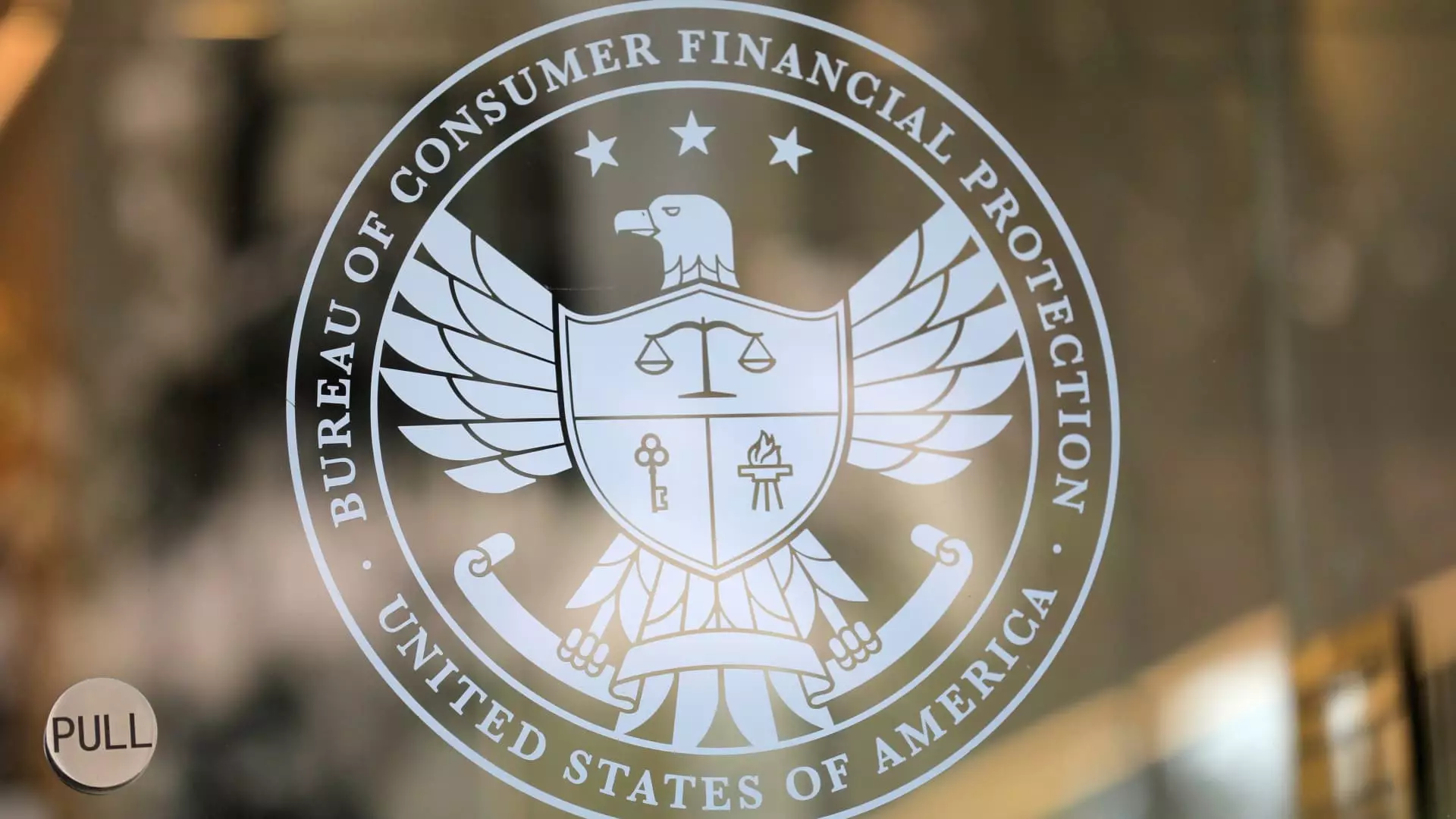The Consumer Financial Protection Bureau (CFPB) has been fighting for its life behind a political curtain that casts doubt over its future. What was once seen as a staunch defender of consumer rights in the aftermath of the 2008 financial crisis is now becoming a battleground for ideological warfare, especially under the Trump administration’s aggressive push to scale down government apparatus. Critics of these moves argue that the resulting chaos could reverberate throughout the financial ecosystem, leaving consumers vulnerable and unprotected.
The suspension of the CFPB’s efforts earlier this year has sent shockwaves through communities that rely on its oversight to navigate the complex waters of finance. With high-profile legal conflicts unfolding, the CFPB’s future remains in the balance as it grapples with existential threats from a federal administration hell-bent on dismantling its authority. A recent two-day hearing focused on whether the administration can legally execute mass staff cuts poses a serious question: can a vastly shrunken agency maintain even a semblance of its original mission?
Legal Tug-of-War and Its Implications
In a contentious standoff reminiscent of a courtroom drama, U.S. District Judge Amy Berman Jackson thwarted an attempt by the administration to terminate a significant portion of the CFPB’s workforce. With 1,500 of 1,700 employees at risk, the court’s decision to preserve their positions is a temporary reprieve, yet the implications for the agency are dire. Mark Paoletta, the CFPB’s acting chief legal officer, suggested in court filings that the agency should reduce to a mere 200 staffers—a troubling acknowledgment that speaks volumes about how drastically the Trump administration views consumer protection.
This reduction echoes a broader sentiment found in the financial industry. Experts are warning that a significant contraction could lead to regulatory vacuum. Without adequate staffing, essential functions like supervising banks, maintaining consumer complaint databases, and enforcing fair lending laws could vanish or operate at a diminished capacity. According to Ian Katz, a policy research director, the absence of a strong consumer protection framework will not only leave consumers exposed but could cultivate a Wild West scenario in the financial services sector where companies operate without meaningful oversight.
Consumer Rights: A Lonely Battlefield
The CFPB, founded as a bastion for consumer protection, has been pivotal in limiting bank overdraft fees, overseeing payment applications, and addressing the concerns of borrowers. However, the winds have shifted, and many of these initiatives are teetering on the brink of collapse. Regulatory rollbacks are already unfolding, with Congress eyeing the repeal of caps on bank overdraft fees that are slated to take effect in October 2025. The question arises: what incentive do banks have to keep fees low amid a competitive landscape when regulatory restraints are fading?
Equally alarming is the decision to rescind requirements for nonbank financial service providers, such as various payment apps, to adhere to the same regulations as traditional banks. This inequity guarantees that while some firms enjoy stringent oversight, others are essentially left unchecked, which could foster an environment ripe for fraud and exploitation. Adam Rust from the Consumer Federation of America warns that consumer protection will further fragment, pushing us into a state of confusion and inefficiency where established complaints might simply languish in obscurity, lacking robust responses from service providers.
The Role of State Attorneys General
Interestingly, not all players are retreating. State attorneys general from 23 states are rallying against the efforts to defund the CFPB. This unexpected alliance may signal a burgeoning resistance movement against federal pressure that threatens to undermine consumer protection. Their engagement highlights a crucial reality: consumer protection is not solely a federal responsibility. The balancing act between federal authority and state-level initiatives could emerge as a critical aspect of consumer advocacy in this new political landscape.
The role of the CFPB cannot be understated; it represents more than just a bureaucratic entity. It is the enforcer of consumer rights, the watchdog of financial institutions, and a vital conversation starter about ethical financial practices. The notion that the CFPB could be systematically dismantled brings about a sense of urgency for consumers. As calls for accountability grow louder, the battleground for consumer rights shifts, reshaping the conversation surrounding the future of financial protection.
In an era characterized by uncertainty and volatility, the weakened CFPB under the current administration poses a significant risk to the very consumers it was designed to protect. As we move into a future where financial service providers may act without adequate oversight, it becomes crucial for every consumer to remain vigilant. The war for consumer protection is far from over; it is evolving, marking a pivotal moment in our collective responsibility to advocate for our rights and protections in an increasingly complex financial landscape.


Leave a Reply